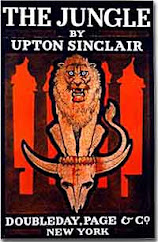Journalism is viewed by much of the general public to be untrustworthy, deceitful and treacherous. That is because journalists are becoming lazy and more driven by advertising money than telling the accurate truth.
This was not always the case.
At one time, reporters were inspired and strived to tell the truth and hold leaders accountable. The Society of Professional Journalists' Code of Ethics says that journalists should be watchdogs for the government and those in power.
That is where the long lasting and well-known impact muckrakers come into play.
The muckrakers were a group of progressive writers from late nineteenth and early twentieth centuries. There were focused on exposés and detailing accounts of political and economic corruption, much of which was talking about and criticizing monopolies and their influence.
The muckrakers had their roots from yellow journalism from the late nineteenth century. This was the beginning of investigative journalism.
Some of the prominent muckrakers include Lincoln Steffens, Ida Tarbell, Upton Sinclair and Ray Stannard Baker. All three of them worked together in the 1890's at McClure's magazine.
Steffens was most well known for his piece called "The Shame of the Cities" that is collection of all his articles from his time at McClure's magazine. It outlines the many ways that urban governments are corrupt. It was an appeal to emotion with the hope that they would be outraged and shamed.
Tarbell was well known for her piece called "The History of Standard Oil". This shed light on Standard Oil's monopolistic activities and eventually led to it being broken up by violating the Sherman Antitrust Act.
Sinclair got his feet wet with journalism when discussing socialist ideals. Writing about these led him to write "The Jungle" that meant to expose bad working conditions in the meatpacking industry. But the piece actually did more to change the meat and food industry instead of working condition.
Baker was also a journalist for McClure's. His most popular piece is called "Following the Color Line" where he portrayed the differences between a black and white person in the American democracy.
 All three of them decided to leave McClure's magazine in 1906 to form the American Magazine where they continued to write stories that held people accountable and told the truth.
All three of them decided to leave McClure's magazine in 1906 to form the American Magazine where they continued to write stories that held people accountable and told the truth.
Their writings influenced major policy changes and decisions.
The first one was when "The Jungle" led to the Food Inspection Act and Pure Food and Drug Act. Both dealt with banning the production of adulterated, misbranded, deleterious or poisonous food.
Shortly thereafter, the seventeenth amendment was also passed that decides that two senators are elected from each state by popular vote. Previously, the senators were decided by each state's legislators. This change was the result of Treason of the Senate articles written by another muckraker David Phillips with the hope to end the corruption by stemming the influence of large corporations on policymaking.
The muckrakers were the perfect example of how journalists can make a difference, whether it is for the good or bad of society.















